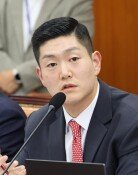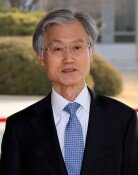Kimchi Shouldn`t Hurt Korea-China Ties
Kimchi Shouldn`t Hurt Korea-China Ties
Posted November. 16, 2005 08:23,
On November 15, four days into the 2005 Busan APEC meetings, Minister Ban Ki-moon held a meeting at BEXCO with his Chinese counterpart Li Zhaoxing and discussed bilateral issues such as the North Korean nuclear issue, Japans view on history, and the controversy over kimchi with parasite eggs.
At the meeting, Minister Li stressed, Japanese Prime Minister Junichiro Koizumis visit to the Yasukuni Shrine is wrong. As an act that offends the sensibilities of Asians, it should not be repeated.
In protest, China will not hold a foreign ministerial meeting with Japan let alone a summit during the APEC period.
Minister Ban asked that China play an active role for the resolution of the North Korean nuclear issue, and Minister Li responded, China will play its part in the six-party talks and closely cooperate with Korea.
Regarding the kimchi issue, Minister Ban said, It should not strain overall Korea-China relations. Minister Li expressed his agreement.
Trade Minister Kim Hyun-jong held a trade ministerial meeting with Chinese Minister of Commerce Bo Xilai and discussed bilateral trade issues such as the issue of Korea granting China market economy status.
The 21 member states of APEC held joint foreign and trade ministerial meetings at BEXCO and discussed cooperative measures regarding trade and civilian security.
The two-day joint ministerial meeting will further discuss the results of the Concluding Senior Officials Meeting (CSOM) which ended on November 13 and report the discussion results at the summit meeting being held on November 18 and 19.
Regarding the Busan Roadmap to be announced at the summit meeting, the joint ministerial meeting centered discussions on the support for multilateral trade system such as World Trade Organization (WTO)s Doha Development Agenda (DDA) negotiations, strengthening individual action plans to achieve the Bogor Goals, and concluding advanced regional trade agreements and free trade agreements.
Cooperative measures to prevent avian influenza (AI) and stopping its spread, and counter-terrorism measures to implement a vulnerability evaluation of major international airports to shoulder-fired surface-to-air missile systems which were agreed on during the CSOM were discussed.
Meanwhile heads-of-state will arrive in turn until November 18 beginning with U.S. President George W. Bush who is scheduled to arrive on November 16.
Jong-Koo Yoon jkmas@donga.com







